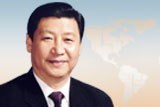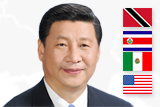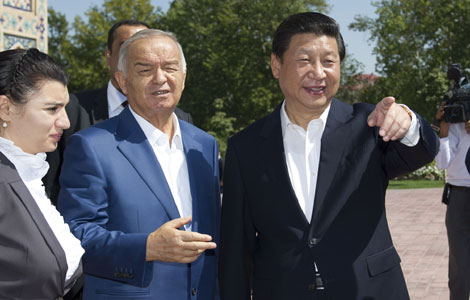
Worries about Chinese economy will further fade
Updated: 2013-09-05 13:47
(Xinhua)
|
|||||||||
BEIJING - Some economists once joked that economic news was essentially bad news. The statement seems particularly true if we look at how Western media have handled reports on the Chinese economy in the past few years.
A few years back, when the Chinese economy recorded double-digit growth rates, everyone seemed to be crying about the overheating "monster."
Fast forward to 2013, when China's growth slows, many Western economists are consistently warning about the impact of the great Chinese slowdown on the world economy.
The immense interest shown in the Chinese economy is understandable.
At a time when Europe continues to struggle with a chronic sovereign debt crisis and the U.S. economic recovery falters, the performance of the world's second largest economy has everything to do with the financial markets and macroeconomic conditions across the globe.
But views differ sharply when it comes to deciphering the Chinese economy.
Some Western media outlets tend to play the role of the perennial doomsayer. In the past few months, they have quickly picked up the negative signs and succeeded to some extent in building them into a new version of the China Debacle story.
From the debt load of the local governments to the so-called shadow banking problem, they have predicted one crisis after another for the Chinese economy.
Fortunately, these predictions have all proved to be overly pessimistic.
It is true that China's economic growth has slowed considerably, but this has happened for at least two good reasons.
Firstly, the global economic recovery has failed to pick up steam. All major economies, from the United States to Europe, have seen their economic prospects darkened to some extent. This inevitably has a negative impact on the Chinese economy.
Secondly, the Chinese economic slowdown is actually a result of the voluntary adjustment that the Chinese government has taken to shift the economy toward a more sustainable mode.
After more than three decades of fast economic growth, both the Chinese government and the people have realized that growth at all costs is not good at all.
Quality growth, which is driven more by domestic consumption than by exports and which has less unfavorable effects on the environment, is now the new paradigm.
As the leaders of major developed and developing economies converge in the Russian city of St. Petersburg for the yearly Group of 20 (G20) summit on Thursday and Friday, the world will have a better chance to understand the Chinese economic situation.
At the plenary session of the summit and the bilateral meetings to be held on the sidelines, Chinese President Xi Jinping has plenty of opportunities to share with world leaders first-hand analysis and assessment of the Chinese economy.
This, coupled with recent good news coming out of China, including improving trade data and a recovering manufacturing sector, will surely make worries about the Chinese economy fade away.
Related Stories
China's G20 role 2013-09-05 10:45
The International Media Center for G20 opens 2013-09-05 01:26
Xi arrives in St Petersburg for G20 summit 2013-09-04 22:45
G20 offers platform for China, France to discuss global issues 2013-09-04 20:46
G20 summit needs crisis-prevention mode 2013-09-04 13:24
G20 leaders to seek cure for ailing world economy 2013-09-04 13:19
Inforgraphic: G20 in focus 2013-09-04 08:09
No Obama-Putin bilat at G20: official 2013-08-31 12:43
G20's role in global economy 2013-08-29 07:27
Schedule









